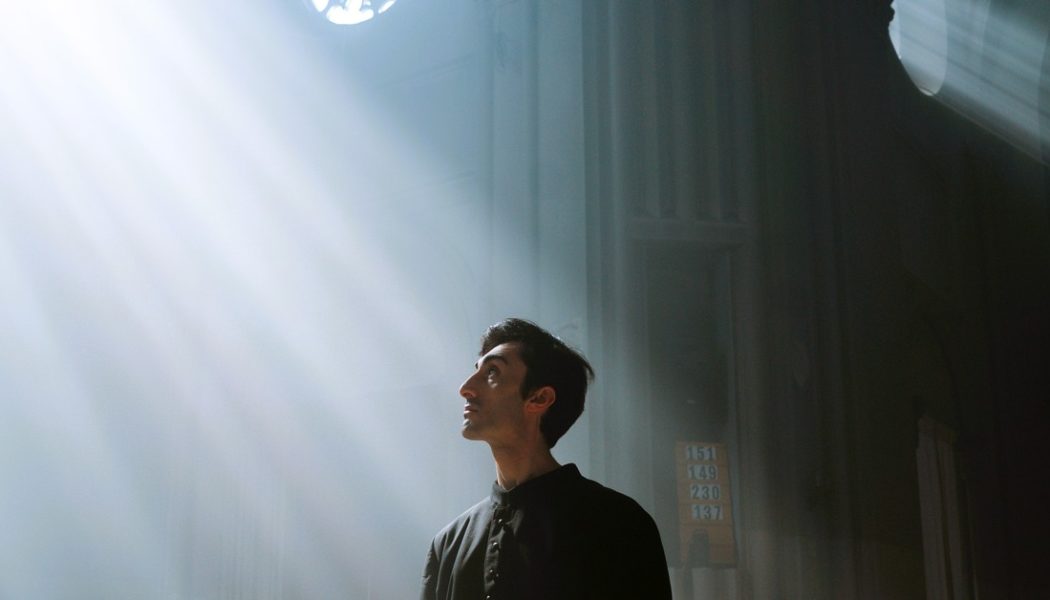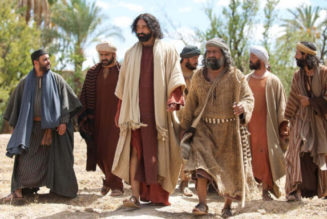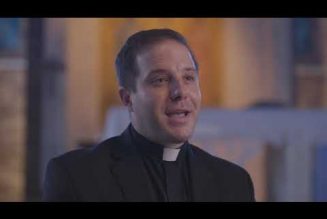
There is a large and growing distrust with institutions in the US. In fact, it has reached record lows according to a new Gallup poll. Trust in “the church or organized religion” is at 31%, down from 37% a year ago. Read another way, 7 out of 10 Americans distrust organized religion, including the Catholic Church. But, other institutions lack the trust of the masses as well. Congress, news organizations, big businesses, the criminal justice system, the Presidency, banks, the Supreme Court, and public schools have even lower levels of trust than religion does. In general, Americans distrust institutions and this distrust is growing year after year. The Church is one of many casualties in this post-institution age.
In some ways, our institutions have earned the distrust and deserve it. Many have been hit with scandals, corruption, lack of effectiveness, mission-drift, greed, poor leadership, division, and political / social one-sidedness. There is also a lack of wider cultural norms, habits, expectations, and community, which help bind us together. We are a fractured people adrift in a culture which lacks meaning, purpose, identity, community, and unity. Some now believe these things are difficult to find if not impossible.
Still, even in the midst of all this uncertainty and distrust, nobody can rid themselves of the existential desire to be:
- loved
- listened to
- cared for
- part of something bigger than ourselves
- part of a community
- known and accepted by others
Therefore, the Church has an opportunity, if she is willing to pivot from trying to shore up the institutions toward meeting people’s felt needs of today. Within the needs of our culture, there is a need for the Catholic Church (you and me) to rise up into a new movement of purpose which reaches the world with truth, goodness, and beauty. A world which desires those things, but just doesn’t want the institutions behind what we offer. We still have the chance to answer the big questions that exist (e.g., meaning, suffering, purpose, love, how to be happy, how to connect to others, etc) – those questions that our modern culture can’t answer. Still, we have to leave some other things behind in order to reach the people of our modern age. Here are a few suggestions as to what kind of plan it will take.
WHAT IT WILL TAKE
- Learn how to swim in the strange new cultural waters, where many don’t care about Jesus or the church (at best) and a good number are even hostile to our beliefs, practices, and purpose. Virtually all of our strategies to win “converts” are geared toward those who are willing to engage with some sort of Catholic thought or idea. Thus, we have won Protestant theologians, pastors, and leaders. Others who might be interested, because they are in the “orbit” of some Catholics include conservative political leaders and those who have studied Catholic history and/or doctrine. Yet, the number of those who self-identify as a Christian are dwindling and our strategies are becoming less effective with everyone else. Few are willing to come to our parishes, programs, and events. We don’t even have a wide-spread culture of outreach which is capable of engaging in a conversation with the rest of the world that never darkens our doors, and which is growing ever farther away from us.
- We need to use our good works to open doors to good news. The Catholic Church built the largest non-governmental network of charitable works the world has ever seen and it doesn’t matter, if we don’t serve our neighbors. The argument for the Catholic Church bears no weight if the acts of justice, mercy, compassion, and charity aren’t having an impact on those we live near. This means we need to get even more involved in our communities, while living out the corporal and spiritual acts of mercy. Feeding the hungry, clothing the naked, helping the addict, ministering to the elderly, etc. – have always had an impact and still will. But, only if our acts are making a difference in our local communities and not just in other communities.
- Focus our messaging on the Gospel. In many ways, our core message has been diluted by not focussing on it, not preaching it, not teaching it, letting other things become priorities over it, and more. Renewal needs the message of Jesus, his grace, his crucifixion and resurrection, his forgiveness and mercy, and his plan of salvation. Without this message the Church loses the heart of her purpose and mission. We also need to learn to help others to respond to this message through repentance and faith. What good does it do someone to know all the arguments for Catholicism and not have faith in Jesus? Focus on Jesus as the foundation for everything else and the rest of our doctrines have a fertile soil to be planted in.
- Prayer needs to undergird all that we do. Not just an Our Father at the beginning of our meetings and a Hail Mary at the end either. Ongoing deep personal corporate prayer. Extraordinary prayer that points to God as worthy of our worship and praise. Humbling ourselves before a God who can heal, forgive, renew, transform, save, and set us free. Begging such a powerful God to come and show his might through the Church once again needs to be at the heart of our mission.The first step is to beg that our own hearts are changed to look like his hearts. Hearts that yearn for the salvation of our families, neighbors, and world. Hearts that can’t help but share Jesus. Until our hearts are changed, we will not do what he wants of us. We may not always see the fruit of our prayer, but the Church has always taught the primacy of prayer in ministry. It still holds true and always will.
- Stop fighting for cultural relevance. Being blended into American culture got us into the mess we are in. Catholics fought anti-Catholicism by conforming to the wider culture and living like everyone else. We (unfortunately) accomplished that goal. Now that most self-identified Catholics live like those around them, being Catholic is the last thing on many American minds. What is the point? Most think of Catholics as strange and many see Catholic leaders as hypocrites. Following Jesus is NEVER supposed to be cool to a non-Christian culture! It is supposed to be radically different. The problem is that not enough modern Catholics in the USA live radical enough lives, which means we have allowed the culture to affect us more than we affect it. Let us be mocked and dismissed for being irrelevant. It is at that point that God will break open stony hearts through us.
- We need to learn how to operate as missionaries in a culture where we are the fringe minority, rather than leaders in a culture where we had a dominant presence. The manner in which we operate still clings to the idea that Christendom exists. Christendom existed when Christianity was the dominant and presumed cultural power. Most people took on an identity that was tied to Christianity and modeled such lifestyles as dictated by a Christian culture. Christian institutions thrived within Christendom. This is no longer the case. We live in mission territory now – missiondom. Thus, our institutions, practices, habits, language, priorities, budgets, personnel, training, education, strategy, evangelization, formation, etc. have to pivot with this change as well.
- Become more creative and innovative. Even though not every GOOD idea is a GOD idea, without allowing and risking some freedom to fail, we won’t see the successes that are before us. What have we got to lose? The events, classes, programs, and plans we currently employ have failed us for generations. Sure, they served those who were already well disposed to receive what we were offering, but the masses who never come to church were not interested 40 years ago and certainly aren’t today. We need risk-takers, entrepreneurs, startups, new apostolates, experiments in parish structure, and more. We need you to lead, not just follow. Where are the ones willing to take a risk so that others might go to heaven? Let us find those folks and back them with money, prayer, and support.
- Pull back from politics. Note – this does not mean we pull out of politics, but that we make sure that less of our efforts, communication, time, money, etc are put into political solutions and are focused more on spiritual ones. This is especially true of institutions (e.g., USCCB, Dioceses, parishes, etc). Instead, let us focus on what distinguishes us from the zeitgeist, the supernatural power of God that is found in Christianity. God answers prayers. God still works miracles. God cares about us and our lives. God can save us. God is present to us in the Sacraments. God speaks to us through the Scriptures, our conscience, the magisterium of the Church, etc. The Gospel message is pertinent to every age, but if one never hears it then they are unable to believe in it.
- Help others discover what is true, good, and beautiful. The prevailing ideas that we determine our own truth, that freedom means freedom to do as I wish (not as I ought), that there is no objective beauty, that meaning is subjective, that morality is subjective, etc. have not given us more human flourishing, but more rancor, sadness, loneliness, and problems. Yet, how can we invite others to flourish if we aren’t ourselves? Once we find these answers, we can’t keep them to ourselves and believe that is enough. The true disciple looks for the opportunity to share Jesus around every corner.
- Help others find a true identity in Jesus. We live in a culture which has deified self. The individual gets to determine identity, meaning, purpose, truth, goodness, morality, relationships, and more. There is no room for a transcendent God in such a framework, because we have made ourselves into the one who makes of these things what we will. No longer are these things given to us, but we make them ourselves. While Christianity has become a more privatized practice, secularism has flourished. These things combined – growth of individualism and privatization of Christianity – mean that Catholics come out on the negative end of things when people do a cost/benefit analysis of their lives. They think to themselves…why take on backward, bigoted, moralistic, and difficult practices when I could be happier and more fulfilled elsewhere? If we don’t have an answer, we won’t make a dent in the problem. The answer is that the world is the one pulling a fast one, because happiness is in short supply in a world without God.
- Don’t just assume the Catholic faith will be inherited. We have to move into an age of giving each Catholic the “choice” to be Catholic, even kids raised in a great Catholic home. Just like every adult convert to Catholicism has to make a public announcement of what they believe, we should give the same clear choice to every cradle Catholic. Preach the kerygma, then make a clear invitation to choose to believe in Jesus and his Church. The difference in lives is amazing. I have seen it happen with average Catholics and Catholic leaders too. The assumption that one is already a disciple because they are a Catholic, stifles our evangelization and has given us a sterile disposition.
- Embrace the global and diverse nature of Catholic culture worldwide. What works in SE Asia may not work in the USA. What attracts a secular person in the U.K. may not work in Nebraska. Be ok with this. Catholicism crosses over cultural boundaries. We are a global and diverse religious body of believers. We have proven time and again that we are able to “baptize” what is good in different cultures, thus enculturating the Gospel in a language and practice that hangs on to what is at the core of our faith, while expressing it in different ways. This means we have to discern what is good in our own local culture and use it when we are able to.
REMEMBER – This isn’t the worst cultural crisis the Catholic Church has faced. Again and again the Church has faced decline, scandal, problems, wars, disease, poverty, and persecution. This isn’t the first time and won’t be the last. Yet, this cross and this time is for us to embrace. God will ask us for an accounting of what we did with his talent, let us not go to him saying we buried it, but that we increased it by a hundredfold!
A CALL TO RENEWAL
This call to renewal in a post-institution age is a call for a movement of Catholic individuals, parishes, dioceses, apostolates, ministries, schools, organizations, orders, and more. It will take a diversity of gifts to reach the culture with the Gospel. We need to support, encourage, finance, and free evangelists who can have expertise in all areas of what is good, true, beautiful, just, kind, loving, faithful, etc. The Church has many gifts to offer the world still, especially in a culture that is lacking in truth, goodness, and beauty. This space where the world’s needs meet the Church’s expertise is the space we need to step boldly into. It includes:
- Great theology that answers the great questions of existence, meaning, death, suffering, salvation, evil, etc. Thus, we need theologians, teachers, professors, catechists, apologists, and others who know how to “translate” our doctrines into a message for the people born of our modern culture. We need to speak what is true, but in a way which allows others to engage with our truths, hears out what they have to say, respects them where they are, desires to lead them to Jesus, and is not wrapped in language that is inaccessible to modernity.
- A deep spirituality that helps modern people encounter God in prayer. This does not limit itself to our own specific practices of prayer or piety, but gathers the myriad of different ways that Catholics pray and allows the full menu of options to be explored. This includes (but is not limited to): Meditation. Scripture study and reflection. Liturgical prayer. Charismatic prayer. Memorized prayer. Impromptu prayer. Music. Chant. Marian devotion. Contemplative prayer. Ignatian. Franciscan. Dominican. Carmelite. Cistercian. Eucharistic. Etc.
- Actions which impact our communities through the acts of charity / mercy. We have to become better leaders in seeing that the needs within our local communities are being met. Does your community have a big drug problem? Then find ways to help addicts. Do you have large migrant populations that need help? Help them. Do you have people who are wealthy that don’t share what they have? Befriend them and invite them to serve others. Find the need and then fill it.
- The beauty found in our liturgy, history, people, and art. We need a new renaissance of Catholic artists, liturgists, musicians, and patrons who support them. Think of how many hearts have been moved by great music, transcendent and reverent worship in our Mass, beautiful artwork, and more. The human heart still longs for such beauty. The modern culture is crass and in many ways has embraced ugliness. Let us be the counterweight to it.
A FINAL THOUGHT
No great movement of spiritual renewal has ever happened without a group of saints who supported one another, had deep intimacy in prayer with God, and who preached the Gospel of Jesus boldly. Our age will need the same. So, let us first of all repent for not being saints yet and resolving to go forward together.
All who read this have my prayers.
Please pray for me too!
God bless.
Join Our Telegram Group : Salvation & Prosperity









